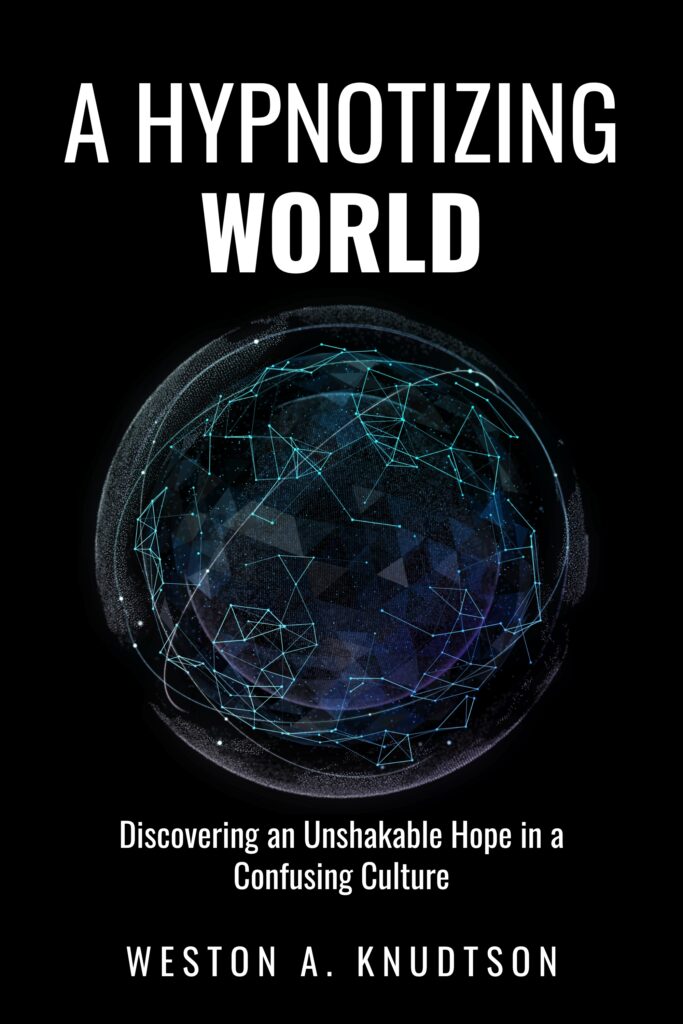For thousands of years God has preserved the Bible, His Living Word, for people to get to know Him. The Bible is one example of God intentionally pursuing a relationship with us. He wants us to know Him more and more. Along with His Spirit as our guide and Jesus’ life and ministry as our visible evidence, the Bible is our best source for growing in our understanding of God—who He says He is and what He does because of who He is. That’s why it’s vital for us to be in His Word daily.
With that said, we’re going to look at 4 Things to Know about the Bible. The Bible is not simply some other book to check off your reading list for the year. It’s living and moving. It tackles huge issues that every person struggles with. It explains God’s plans for our relationship with Him and other people. It provides God’s guidelines for how to live a life for Him. So, because the Bible is a complicated book, I want to give you these 4 things to help you better understand what you’re reading, how it’s trustworthy, and why it’s important for our lives. It is not outdated or irrelevant to the peoples and cultures of today. It is completely relevant to you and I right where we are in this very moment.
1. Historical
First off, it’s important to understand how the Bible fits in the history of the world. Is it a work of fiction or nonfiction? The Bible is a nonfiction historical book. The people and events in each book of the Bible tell the history of the Israelites, God’s chosen people, from the beginning of mankind to the time after Christ’s death and resurrection. It also gives an account of the creation of God’s Church in the New Testament through Jesus’ disciples. These people and events can be cross-referenced with many ancient texts and archaeological findings. They are real and present within the history of the world. You will also recognize other nations, cultures, and leaders of the world during the time of the events in the Bible who ruled over, influenced, or battled with God’s people. You’ll read about Egyptians, Assyrians, Persians, Greeks, Romans, and many others. You’ll recognize such names like Cyrus the Great, Xerxes, Pharaoh, Caesar Augustus, and more. The Bible is not some fictional work to inspire people to follow God. It is part of the world’s history—a history written by God.
This is one of the ways God led me to Himself. He captured my attention in my college world history class when I recognized some names from the Bible in my lesson. Cyrus the Great was one of the names that struck me. This built a hunger within me to read God’s Word. The Bible became real to me as I read it as a historical document, not some magic book to suit my needs when I want advice. When God gave me an understanding for the historical importance of the Bible, I better understood God’s plan and work in His creation.
2. God-Breathed
Another vital point I want to highlight is that the Bible is God’s. This may seem obvious, but I think we often forget this as we’re reading. When we forget this, the Bible loses its authority over our lives. We must remember, His Word spoke the seen and unseen into existence. It is His Word that made history. And it is His Word that created the Bible. 2 Timothy 3:16 tells us: “All Scripture is God-breathed and is useful for teaching, rebuking, correcting and training in righteousness, so that the man of God may be thoroughly equipped for every good work.” All Scripture was spoken and written by God’s authority.
During His time on earth, Jesus confirms the authority and power of God’s Word. In his book, When Skeptics Ask, Norman L. Geisler explains “Jesus spoke of the whole Old Testament (Matthew 22:29), its central divisions (Luke 16:16), its individual books (Matthew 22:43; 24:15), its events (Matthew 19:4-5; Luke 17:27), and even its letters and parts of letters (Matthew 5:18) as having divine authority.” Jesus knew the Scriptures and lived by them while He was on earth. Geisler later states that Jesus promised the New Testament. He says:
“Jesus told His disciples just before He left them, ‘These things I have spoken to you while abiding with you. But the Helper, the Holy Spirit, whom the Father will send in My name, He will teach you all things, and bring to your remembrance all that I said to you’ (John 14:25-26). Jesus added, ‘When He, the Spirit of truth, comes, He will guide you into all the truth; for He will not speak on His own initiative, but whatever He hears, He will speak; and He will disclose to you what is to come’ (16:13). These statements promise that the teachings of Jesus will be remembered and understood, and that additional truths would be given to the apostles so that the church could be established. They set the stage for the apostolic era, which began on the Day of Pentecost (Acts 2) and continued until the last of the apostles died (John, about AD 100).”
From this, we see Jesus clearly spoke about the Old and New Testament being the Word of God. The Bible is not a book to take lightly. It is God speaking to His people.
3. Written by Men
So, you may ask, if the Bible is the Word of God, why did men write it? The Bible explains: “Above all, you must understand that no prophecy of Scripture came about by the prophet’s own interpretation. For prophecy never had its origin in the will of man, but men spoke from God as they were carried along by the Holy Spirit” (2 Peter 1:21). The Bible was written by men, but the words are not from men. There are about thirty-five different human authors of the Bible. The Bible was written in a span of over 1,000 years. The earliest piece of Scripture was written by Moses between ca. 1440 and 1400 B.C. while the latest was written by the Apostle John around A.D. 96.
I appreciate how Norman L. Geisler explains how the Bible was written. He says: “The net result is that we have the Word of God written by the people of God, inspired not only in its concepts, but in the very words used to express those concepts. However, the human writers are not mere secretaries, but active agents who express their own experiences, thoughts, and feelings in what they have written.” The truths in the Bible were spoken by God through people who also wrote out their experiences, thoughts, and feelings. God chose to use broken and sinful people for His purposes. And He still does. This is yet another example of God desiring a relationship with people.
4. Infallible
Even though the Bible was written by men, it is infallible. Every word is in it for a very specific purpose. Remember what 2 Timothy 3:16 says: “All Scripture is God-breathed.” There are no mistakes or errors. God was in complete control of how and when the Bible was put together. His Word perfectly illustrates who God is, what He does, and who we are in relationship to Him. God is perfect, holy, righteous, sinless, and infallible. The Bible is full of men and women who were imperfect, unholy, unrighteous, sinful, and fallible, but the Bible came from God, making it infallible. The truths in the Bible are uncontradictory, unchanging, and stand strong from beginning to the end.
What I want you to grasp from all of this is that the Bible was written and put together by men, but all of it was inspired by God. The writings in the Bible were not placed together randomly. They form a complete story that, amazingly, all point to one person, Jesus Christ. Remember, God wants us to know Him intimately. And we can’t know Him fully without Jesus Christ. That’s why God chose to use ordinary men to write the story of His one and only Son who came to save and bless all nations. It was the best way to relate to all peoples through each and every generation. People change, but God never changes. And He provided us with truths about Himself and about mankind that are relatable and relevant through the ages.


